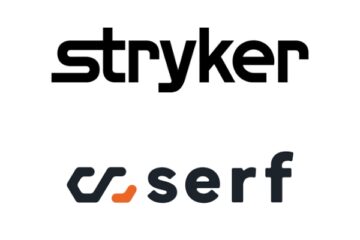Healthcare will become digitised by 2030 to keep services alive, experts predict
Automation, robotics and self-diagnosis will soon play a vital role in caring for ageing populations and creating better experiences for both patients and health workers, but security risks could rise, according to Aruba report published today.
Within ten years your medical check-up could involve more interaction with sensors, cameras and robotic scanning devices than human doctors and nurses, as healthcare organisations re-build services around the Internet of Things (IoT), according to a new report by Aruba, a Hewlett Packard Enterprise company.
The ‘Building the Hospital of 2030′ report, features the results of interviews carried out with senior healthcare leaders and futureologists. It explains both the likelihood, and the need, for the healthcare industry to creater smarter workplaces that incorporate mobile, cloud and IoT technology, and explores the ways in which this will transform the patient experience and improve clinical care.
The study makes five key predictions for how the industry will transform by 2030, including:
- Patient self-diagnosis: Using app-based and wearable tools to monitor your health and even carry out your own scans, patients will finally have the ability to self-diagnose a wide number of conditions at home, without needing to visit a surgery or hospital.
- The automated hospital: Hospital check-in will feature imaging technology that can assess your heart rate, temperature and respiratory rate from the moment you walk in, followed by sensors that can perform a blood pressure and ECG test within 10 seconds, and lead to an automatic triage or even diagnosis right there and then.
- Health professionals double their free time: Doctors and nurses, who are currently spending up to 70% of their time on administrative work, will be able to quickly analyse scans or patient records via their mobile device, freeing up huge amounts of their day to focus on patient care.
- Digital data repositories: Devices will automatically integrate with your digital patient records, automatically updating on your condition and treatment, giving caregivers a richer, real-time, readily-accessible data to make more better decisions.
- Acceptance of AI: As artificial intelligence (AI) starts to play an increasing role in diagnosis and treatments, public support will grow to the extent that you will be willing to be diagnosed by machine – provided that services are designed and implemented around patients, the benefits are explained, and permission is sought.
Explaining the ability of AI to enhance medical, care, UCL Professor, Dr. Hugh Montgomery said: “Within ten years, you may be able to essay around 50,000 different blood proteins from a single drop, and make much quicker, or even automatic, diagnoses. That’s radical and in no way happens at the moment. I might get 30 variables, today.”
On the topic of patient self-care, Digital Health Futurist, Maneesh Juneja adds: “Let’s say you are diagnosed with diabetes or high blood pressure in 10 years time. Once you’ve been diagnosed, a lot of the monitoring of how you’re taking your medication could be done without the healthcare system seeing you as frequently. They could track your data in real-time and know if you’re deviating from your recommended diet or treatment plan, then send you a digital nudge on your smartwatch or augmented reality glasses.”
Such advances are far from science-fiction, argues the report, and could prove vital in the struggle to better care for an ageing population: UN figures suggest that the population of over 60s will have increased 56% by 2030, greatly increasing the need for more efficient health services.
“We’re in for a massive transformation and disruption in the next 5-10 years for two reasons,” said Hugh Montgomery. “Firstly the technology’s changing that fast, and secondly, there’s this massive pressure to get it out there. Because if we don’t, health services are going to fall over.”
Digitising and securing the hospital
Recognising the need to modernise, healthcare organisations are already beginning the journey towards digitisation, says the report. Aruba’s own research finds that nearly two thirds (64%) of healthcare organisations have begun to connect patient monitors to their network, and 41% are connecting imaging or x-ray devices. Such measures are the building blocks for an Internet of Things (IoT) strategy, with potentially millions of interconnected medical, wearable and mobile devices sharing up-to-date information that can be more easily shared and used to provide higher quality care.
However, the approach is currently fraught with risk. 89% of healthcare organisations that have adopted an IoT strategy, have experienced an IoT-related data breach. With the explosion of new technology devices appearing over the course of the next decade, a key challenge for organisations will be to maintain visibility of all devices connecting to their network and sharing medical data, in order to apply strict security rules.
Morten Illum VP EMEA at Aruba, concludes: “The rise of digital health services is about improving patient experiences, and increasing accuracy and quality of care. Above all else, that is what we think healthcare providers and members of the public should be excited about. But data security risk is emerging as one big challenge here. That’s why these changes take time to deploy, and we expect to see healthcare companies partnering with technology providers to negotiate both technological and cultural change in the coming years. With the benefits that are on offer, it is certainly worth the effort.”
Source: www.arubanetworks.com
Photo: futurism.com


